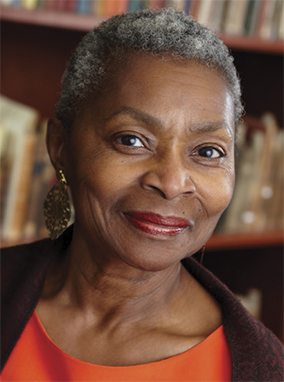HISTORIC BLACK VEGAS: Remembering the March on Washington
August 12, 2025 by agutting@reviewjournal.com
Filed under Community
BY CLAYTEE D. WHITE
I remember watching the March on Washington on my family’s tiny, black-and-white television in Bertie County, North Carolina. We were sharecroppers — but for some reason, I was in the living room alone and can’t fathom why I was not in the field working alongside my family.
I won’t focus on the “I Have a Dream” speech by Dr. Martin Luther King, Jr. because many think that was the only speech of the day. This was a march to protest for jobs and freedom. Marion Anderson and Mahalia Jackson sang. Bayard Rustin and A. Philip Randolph were the named organizers with many people behind the scenes, including many women who worked tirelessly, made major decisions, and assumed major leadership roles. But this piece is written so that you will remember the role of people like John Lewis — yes that “good trouble” guy — who was there stirring things up.
At that time Lewis believed that this country was involved in a social revolution because our “politics that forced this march were dominated by politicians who built their careers on immoral compromises and they ally themselves with open forms of political, economic, and social exploitation.”
King had already explained why we couldn’t wait in his “Letter from a Birmingham Jail.” Lewis told us again: “To those who have said, ‘Be patient and wait,’ we have long said that we cannot be patient. We do not want our freedom gradually, but we want to be free now! We are tired. We are tired of being beaten by policemen. We are tired of seeing our people locked up in jail over and over again. And then you holler, “Be patient.’ How long can we be patient? We want our freedom and we want it now. We do not want to go to jail. But we will go to jail if this is the price we must pay for love, brotherhood, and true peace.”
This speech should also be given in schools, especially this conclusion: “We will not stop. … If we do not get meaningful legislation out of this Congress, the time will come when we will not confine our marching to Washington. We will march through the South; through the streets of Jackson, through the streets of Danville, through the streets of Cambridge, through the streets of Birmingham. But we will march with the spirit of love and with the spirit of dignity that we have shown here today. By the force of our demands, our determination, and our numbers, we shall splinter the segregated South into a thousand pieces and put them together in the image of God and democracy. We must say: ‘Wake up America! Wake up!’ For we cannot stop, and we will not and cannot be patient.”
Next year, for King Day, Black History Month, and Juneteenth, let’s memorize this speech.






